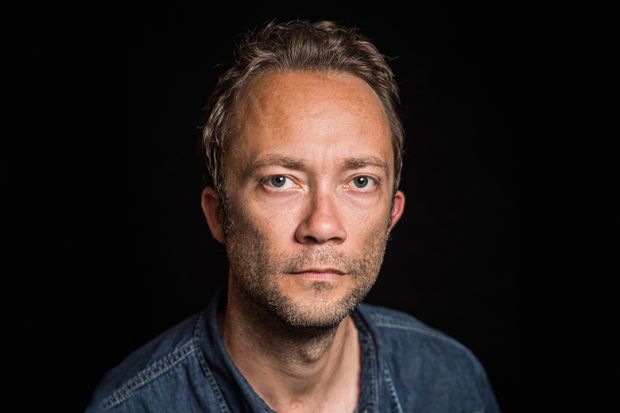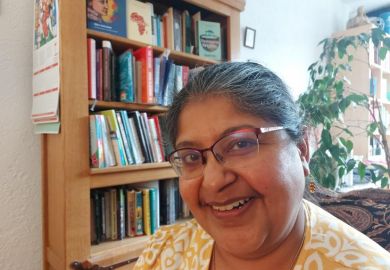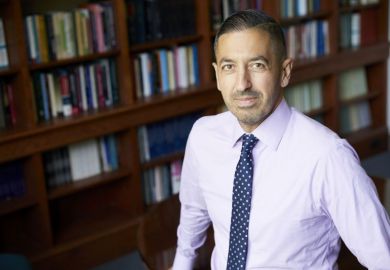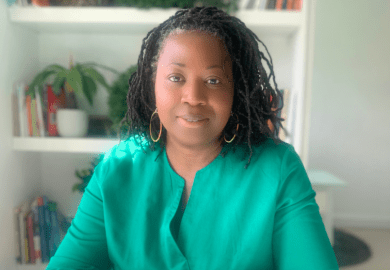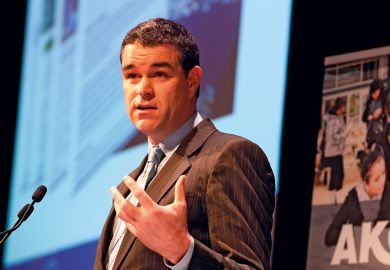Tom Lee is a short-story writer, novelist and senior lecturer in creative writing at Goldsmiths, University of London. His latest book, The Bullet: A Memoir, describes his and his parents’ troubles with mental illness.
Where and when were you born?
Wivenhoe, a village in Essex, in 1974.
How has this shaped you?
Wivenhoe is a pretty, riverside village, originally a fishing and boat-building place but, since the mid-1960s, fundamentally shaped by being adjacent to the University of Essex. My dad was an academic there and the village was filled with other academics, their children and generations of students. So the atmosphere was academic, political and fairly bohemian, with a lot of radical sociologists, artists, musicians and drunks.
What kind of an undergraduate were you?
Not a good one, in the conventional way. I studied American and English literature at UEA, drawn by a vague awareness of Malcolm Bradbury’s creative writing MA and the fact that writers I loved had studied there: Ian McEwan, Kazuo Ishiguro et al. I did enough and enjoyed the reading, but the approach to analysing literature, fairly theory-heavy in those days, wasn’t a natural fit. In my third year I went on exchange to the University of California, Santa Cruz, a beautiful, mind-expanding time. Back at UEA in my fourth year I took some creative writing courses with Julia Bell, a writer and academic now at Birkbeck, and these workshops seemed like what I had been waiting for – a place to discuss and explore the messy reality of actually trying to create a piece of fiction.
When did you realise you wanted to be a writer?
At the exact moment I stopped wanting to be a drummer. That was the dream I had pursued quite obsessively through my early teens and when I came to – painful – terms with the fact that I wasn’t really good enough, I suppose I needed another thing. Fundamentally, then, I fell in love with reading. All the obvious ones at that age – The Catcher in the Rye, The Bell Jar, then The Great Gatsby, all of Graham Greene. Then at some point you start to think, wouldn’t it be amazing to be able to write something like that, and then it’s over – nothing else feels quite as worthwhile.
Your book, The Bullet, examines your own psychological breakdown, which began in 2008. When did you first realise something was wrong?
It manifested very strangely – at first entirely as a physical illness. I was at an academic conference in Ireland, feeling fairly lonely and had a couple of days of really bad headaches. On the last day of the conference, I woke up very early feeling nauseous and with a strange stiffness in my hands. I flew back to London, but it didn’t pass. Over the next two weeks I had flu-like symptoms that came and went – total exhaustion, poor sleep – and took time off work. I had been diagnosed with chronic fatigue in my twenties and although I had gradually recovered, I began to be convinced that I was relapsing. Lying awake one night, this fear gripped me completely and I descended into a state of uncontrollable anxiety. After this strange preamble of physical symptoms, this is the moment I think of as the beginning of my breakdown – a psychological rather than physical one – and it took me a long time to put myself back together.
Was it distressing to revisit that period of your life?
I’m not sure it was always healthy to be spending so much time buried in and revisiting this material. On the other hand, I did enjoy writing the book, in the sense of crafting something that I felt told a story well and vividly. I had really strong material to work with, and it was a good challenge to get the best out of it.
The book also explores the mental health challenges of your parents, who both spent time in a mental health institution. Did you think twice about exploring this traumatic time for your family?
Yes. This was terrifically difficult – the book will be a one-off for me. But this is the story I had to tell, and I can’t imagine writing anything else so personal and intimate. Looking back to the beginning of it, I did not take seriously enough the question of what it would be possible or right to include about my parents’ lives. At Goldsmiths, we tell life writing students to write their stories as uninhibitedly as they can, as if no one is ever going to read it, and they can worry about all those issues if someone wants to publish it. It’s the right advice – you cannot write well if you are constantly censoring yourself for good taste and the risk of upsetting someone. And so that’s what I did, but when publication comes into play these problems are real. Various friends, trying to reassure me, said, “Well, this is your story, too,” and whilst I think that is true, to a degree, there is also stuff in there that is primarily not my story, and I had a lot of doubts. Some of the material is difficult for my mum, but readers have told me that the writing about my parents is tender and sympathetic, so I am glad about that. All this has been interesting but not always comfortable.
Your book has been praised for its unsparing examination of mental healthcare in Britain. What one thing could be done to fix the current system?
If it has to be one thing then the only answer is: money. Like the rest of the public sector – and perhaps to an even greater degree than other areas – mental health services have been stripped bare over recent years; people’s need for help at all levels, whether in primary care or deeper into the system, totally overwhelms what is available.
Many academics feel stressed by their working environments. Do you feel UK academia is worsening the mental health of its workforce?
I’m sure that’s the case. At Goldsmiths we are going through an extremely painful “transformation programme” in which around half of the academic staff have been put “at risk” of redundancy, and that follows on from a previous round of redundancies in the English and history departments less than two years ago. You can imagine what that does for staff well-being. Colleagues are really suffering.
jack.grove@timeshighereducation.com
CV
1997 BA, American and English literature, University of East Anglia
2002 MA, creative and life writing, Goldsmiths, University of London
2009 Greenfly
2016 PhD, creative writing, Goldsmiths
2017 The Alarming Palsy of James Orr
2024 The Bullet: A Memoir
Appointments
Shearer West will be the next vice-chancellor of the University of Leeds, and will take up the post in November, succeeding interim leader Hai-Sui Yu. She has been vice-chancellor of the University of Nottingham since 2017 and before that was provost and deputy vice-chancellor of the University of Sheffield, and head of the humanities division at the University of Oxford. Alastair Da Costa, chair of Leeds’ council, said that Professor West had “demonstrated the strategic vision, personal energy, and extensive leadership experience to guide our institution into the next phase of its success”.
Julie Hall has been promoted to vice-chancellor of London Metropolitan University and will succeed Lynn Dobbs on her retirement at the end of the year. The professor of higher education, currently the campus’ deputy vice-chancellor and provost, began her career at London Guildhall University, a predecessor institution of London Met. More recently she was senior deputy vice-chancellor at Solent University, Southampton. Professor Hall said Professor Dobbs had “secured London Met’s future, and I am eager to keep this momentum going while also bringing my own ideas and vision”.
Jana Jasinski has been appointed vice-provost of the University of Kentucky. She is currently vice-provost for faculty excellence and Pegasus professor of sociology at the University of Central Florida.
Andrea Taylor, currently interim chief executive of Edinburgh Innovations, the University of Edinburgh’s commercialisation service, has been handed the role on a permanent basis. Previously she was the organisation’s director of strategic partnerships.
Shery Walsh has joined the University of Texas at El Paso as executive director of its Aerospace Center, and professor of practice. She is former director of the US Air Force Office of Scientific Research.
Columbia University has appointed Daniel Zarrilli its first ever chief climate and sustainability officer. Previously he was special adviser for climate and sustainability.
Register to continue
Why register?
- Registration is free and only takes a moment
- Once registered, you can read 3 articles a month
- Sign up for our newsletter
Subscribe
Or subscribe for unlimited access to:
- Unlimited access to news, views, insights & reviews
- Digital editions
- Digital access to THE’s university and college rankings analysis
Already registered or a current subscriber?
